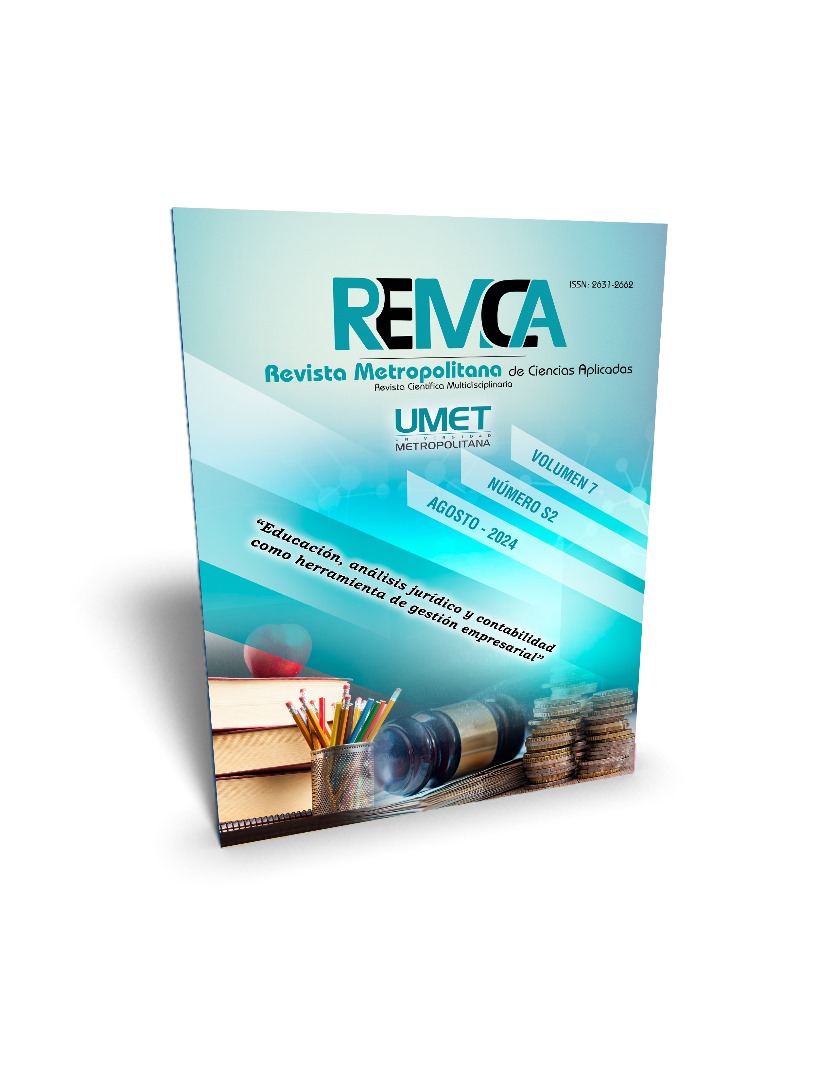Artificial Intelligence for equitable, inclusive and quality education.
DOI:
https://doi.org/10.62452/bm4k4j93Keywords:
Artificial intelligence, education, inclusionAbstract
Artificial intelligence can count as a tool for the creation of new environments in daily life, making the acquisition of new knowledge more accessible to the population, favoring the different strategies that can be implemented in its use, likewise, giving a teaching to new generations about the greatest benefit of these new tools. One of the main distinctive features arises from recognizing that Artificial Intelligence (AI) is not a current issue, therefore it is essential to observe the different perspectives in two different periods, although it can be deduced that it was created to support and reduce the work of human beings, on the other hand, to the activities to be carried out by them, so it is important to understand how the evolution of this concept has been carried out as a main role in education with proposals for different problems.
Downloads
References
Alvarado Rodríguez, F. J. (2023). El Papel de la Inteligencia Artificial en la brecha educativa y digital en México. https://www.uag.mx/es/mediaHub/el-papel-de-la-inteligencia-artificial-en-la-brecha-educativa-y-digital-en-mexico/2023-08
Cabrera, M., Vuorikari, R., & Punie, Y. (2019). The Impact of Artificial Intelligence on Learning, Teaching, and Education. Office of the European Union. https://intef.es/wp-content/uploads/2020/02/2019_11_Inteligencia-Artificial_JRC_INTEF.pdf
Corresponsables. (2021). ODS4. Educación, tecnología e inteligencia artificial ¿cuál es el futuro de la enseñanza? https://www.corresponsables.com/actualidad/ods4-educacion-tecnologia-inteligencia-artificial-cual-futuro-ensenanza
Gray, C. (2022). La inclusión en la educación. UNESCO. https://www.unesco.org/es/education/inclusion
Gross, B. (1992). La inteligencia artificial y su aplicación en la enseñanza. Comunicación Lenguaje y Educación 4(13).
Instituto Mexicano de la Juventud. (2018). ODS 4. Educación de calidad. https://www.gob.mx/imjuve/articulos/ods-4-educacion-de-calidad?idiom=es
Organización de las Naciones Unidas para la Educación, la Ciencia y la Cultura. (2019). La Inteligencia Artificial en la Educación. https://es.unesco.org/themes/tic-educacion/inteligencia-artificial
Organización de las Naciones Unidas. (2020). Objetivo 4: Garantizar una educación inclusiva, equitativa y de calidad y promover oportunidades de aprendizaje durante toda la vida para todos. https://www.un.org/sustainabledevelopment/es/education/
Downloads
Published
Issue
Section
License
Copyright (c) 2024 Joselin Camarena-López, Naomi Paulina Trejo-García, Yuleidy Uribe-Neria (Autor/a)

This work is licensed under a Creative Commons Attribution-NonCommercial-ShareAlike 4.0 International License.
Authors who publish in Revista Metropolitana de Ciencias Aplicadas (REMCA), agree to the following terms:
1. Copyright
Authors retain unrestricted copyright to their work. Authors grant the journal the right of first publication. To this end, they assign the journal non-exclusive exploitation rights (reproduction, distribution, public communication, and transformation). Authors may enter into additional agreements for the non-exclusive distribution of the version of the work published in the journal, provided that acknowledgment of its initial publication in this journal is given.
© The authors.
2. License
The articles are published in the journal under the Creative Commons Attribution-NonCommercial-ShareAlike 4.0 International License (CC BY-NC-SA 4.0). The terms can be found at: https://creativecommons.org/licenses/by-nc-sa/4.0/deed.en
This license allows:
- Sharing: Copying and redistributing the material in any medium or format.
- Adapting: Remixing, transforming, and building upon the material.
Under the following terms:
- Attribution: You must give appropriate credit, provide a link to the license, and indicate if any changes were made. You may do this in any reasonable manner, but not in any way that suggests the licensor endorses or sponsors your use.
- NonCommercial: You may not use the material for commercial purposes.
- ShareAlike: If you remix, transform, or build upon the material, you must distribute your creation under the same license as the original work.
There are no additional restrictions. You may not apply legal terms or technological measures that legally restrict others from doing anything the license permits.




